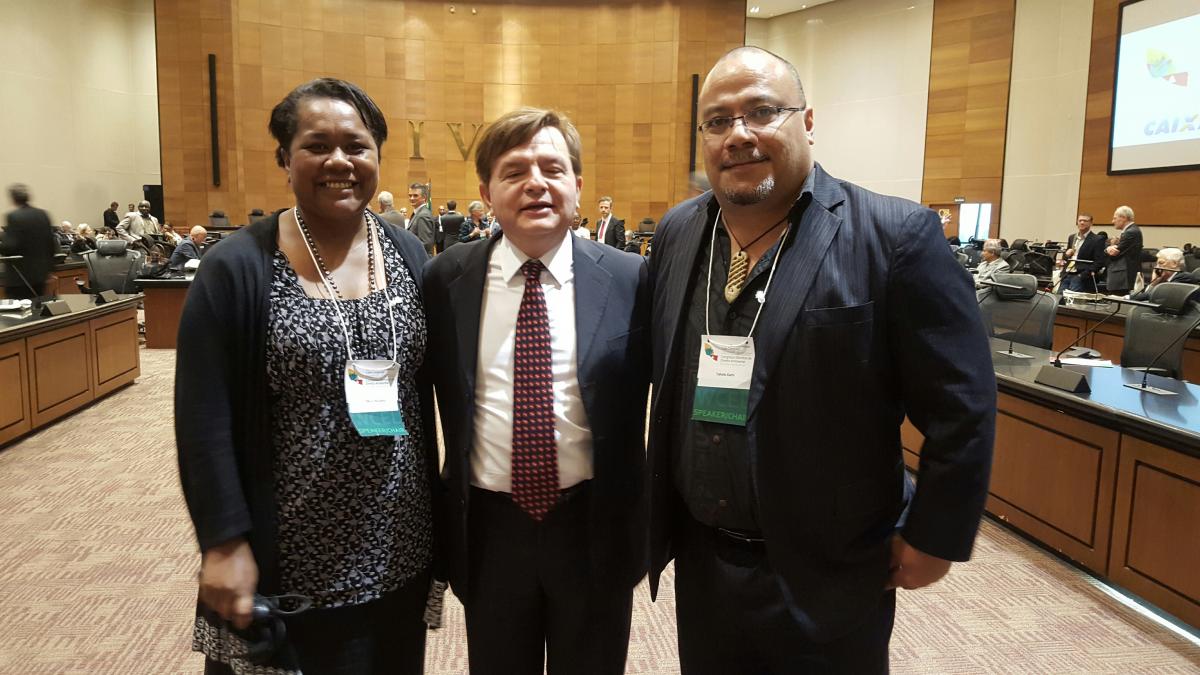IUCN Oceania represented at the first World Environment Law Congress
Brazil played host to the first World Environmental Law Congress. The event, which took place in the Supreme Court of the State of Rio de Janeiro from 27 to 29 April 2016, was well attended by environmental lawyers and members of the judiciary from around the world.

Photo: IUCN Oceania
 Photo: IUCN Oceania
Photo: IUCN Oceania
Held under the auspices of the International Union for Conservation of Nature (IUCN), the IUCN World Commission on Environmental Law (WCEL) collaborated with the United Nations Environment Programme (UNEP) and with the support of the Brazilian Association of Judges, the Supreme Court of the State of Rio de Janeiro, the Brazilian Judicial School (ENM), and the Association of Judges of the State of Rio de Janeiro (AMAERJ).
Discussions at the Congress focused on the vision “Effective environmental rule of law for ensuring a just world that fully values and conserves Nature”. It provided an opportunity for lawyers and members of the judiciary to discuss on furthering the role of law in developing and implementing solutions that will ensure ecological, social and economic sustainability.
IUCN Oceania was represented by the IUCN Oceania Regional Director, Taholo Kami and Environment Legal Officer, Maria-Goreti Muavesi through the invitation of the WCEL Chair, Antonio Herman Benjamin. They both made presentations during the Congress but on different thematic areas. Maria presented at the pre-congress event hosted by the WCEL Early Career Group titled “WCEL Global Colloquium of Early Career Environmental Law Experts” Legal Tools for Sustainable Futures in the Anthropocene”. Maria’s presentation focused on Governance and Rights in particular the challenges faced in Pacific Island countries with the implementation and enforcement of Multilateral Environment Agreements, environment policies and legislations. Taholo, on the other hand presented on the first day of congress during the “Climate Change, Energy and the Oslo Principles: Adjudicating the Future” parallel session. His presentation focused on climate migration as a result of the impacts of climate change.
Outcomes from the Congress included a draft World Declaration on the Environment Rule of Law and the establishment of the Global Judicial Institute for the Environment. The declaration’s objective is “to build the environment rule of law as the legal framework for environmental justice and global ecological integrity” and contains 17 Principles that will assist in achieving this objective. Implementation of the declaration is outlined under Principle 17 and promotes the spirit of cooperation and coordination across jurisdictions, private and public sectors and disciplines.
The next World Environment Law Congress will be held in 2020 and is intended to review the progress of implementation of the Declaration on the Environment Rule of Law and consider directors for further work.



